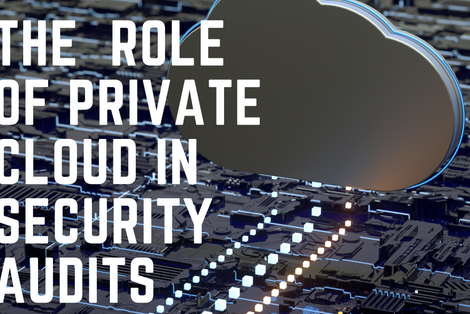Cloud storage is becoming increasingly popular in business. It's easy to see why: clouds allow employees to access resources matter their location. Clouds permitted work to continue when the pandemic struck, and businesses and their employees moved to a remote setup.
As we return to normal, cloud storage remains popular. Despite that popularity, there are still a lot of misconceptions surrounding cloud storage. In this article, we'll dispel the myths and shine a light on the truth of cloud storage and cloud security.
Security Issues in Cloud Computing
This article doesn't say there aren't security issues in cloud computing. There are several things to keep in mind when it comes to securing the cloud, such as
- Hacked accounts. Poor password hygiene makes any account easy to hack. A cybercriminal with login credentials can access resources on the cloud.
- Lack of visibility. Organizations don't always own the infrastructure where their data is stored. Lack of ownership can lead to a lack of visibility, leading to security concerns.
- External sharing of data. The cloud is notoriously accessible, but this also leads to security concerns. Link sharing has become popular, as inviting each collaborator can be tedious, but this can also allow cybercriminals easy access to information.
Cloud Security Myths
Despite the cloud's popularity, there are many myths surrounding its security. Let's break down seven of them.
Myth #1 Cloud Security is All the Same
Cloud security isn't a one-size-fits-all setup. Not only are there multiple cloud vendors, but there are also a variety of cloud configurations. From private to public, hybrid to multi-cloud, there isn't just one way to utilize a cloud platform.
Since there are many different cloud deployments, it should come as no surprise that there are multiple ways to secure those deployments. Each deployment comes with its security strengths and weaknesses, which will need to be considered when creating a cybersecurity posture.
Myth #2 Cloud Storage isn't as Secure as On-Premise Storage
The myth that cloud storage isn't as secure as on-premise storage is probably one of the most common misconceptions about cloud security. In reality, cybersecurity is dependent on the measures taken rather than the location of the data. Higher levels of cybersecurity are more accessible via the cloud than on-premise storage.
Myth #3 Private Clouds are Always the Most Secure
Like the above myth, a private cloud doesn't necessarily mean a secure one. The security measures to protect the private cloud make it a safe storage option.
Myth #4 Cloud Providers are Responsible for Security
This myth can get tricky should a breach happen. While cloud providers have cybersecurity measures in place, it is up to you to use caution when securing data on local devices and data sent outside the organization.
Security measures should include company use policies, multi-factor identification, and employee cybersecurity training.
Myth #5 Cloud Storage Isn't Compliant
Industry-specific compliance is something businesses need to keep in mind. As cloud storage has gained popularity, there have been changes in compliance regulations to allow for cloud storage. Cloud storage may make meeting compliance standards easier.
Myth #6 Data in the Cloud Can't Be Controlled
The notion that you cannot control data in the cloud points back to the previous myth that cloud storage is not compliant. Many compliance standards require data to live in the country where the organization is based. With some organizations expanding overseas, setting up a data center for storage in various countries could be costly. Utilizing cloud storage can alleviate this issue.
Myth #7 Multi-cloud will Prevent Lock-in
While many organizations start with one cloud provider, it is not uncommon to bring on additional providers to prevent over-reliance on one provider. Utilizing more than one public cloud provider is known as multi-cloud.
A multi-cloud deployment allows organizations to utilize multiple providers' services, but it doesn't prevent lock-in. Public cloud providers are notoriously hard to leave. If lock-in is a concern, there needs to be a closer examination and a plan put in place.
Cloud Security Facts
As with any data storage, there needs to be a cybersecurity posture built around securing the cloud. There is no single thing to secure the cloud. Instead, you need to develop the security necessary to support each cloud deployment.
Working with a partner that understands cloud security is essential in securing your cloud deployment.
How Anteris Can Help
Not everything listed above is going to be suitable for every cloud deployment. As a strategic provider, Anteris works with our Clients to find the best solution for their situations.
At Anteris, we make security a top priority. As cybersecurity professionals, our security services support your business and protect your data from outside threats.
We offer our Clients private and hybrid cloud management services. Clients can access enterprise-level hardware and security through our data center for a predictable monthly fee.
We pride ourselves on being lifelong learners. Being a security expert doesn't mean someone has learned everything they need about cybersecurity.
That's impossible. It's constantly changing. We know that and recognize that cybersecurity is an ever-evolving process to assess, align, act, and keep moving forward as cybersecurity changes.
While there is no guaranteed protection against threats, we also have best practices for recovery in the event of a security breach.
Let us make your technology freeing, not frustrating.




